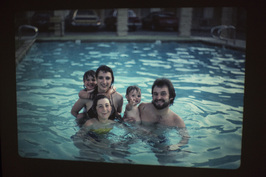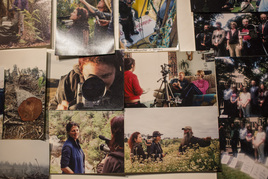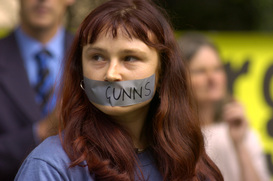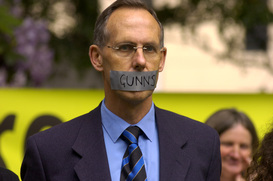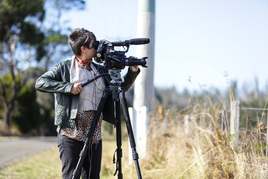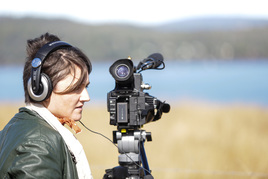|
DIRECTOR'S STATEMENT - HEIDI LEE DOUGLAS
My parents were teachers who loved to take the family on shoestring adventures, camping around Australia and backpacking through Asia. My earliest memories are of the wild forests and deserts of Australia, and staying in small villages in Southeast Asia. These travels developed my sense of connection to nature and my capacity for empathy, as I met children my own age living in extreme poverty. Some experiences left a very deep imprint – like meeting children on street corners in Bangkok whose parents had deliberately mutilated them, so they could “work” as beggars to support the family. I wanted to find a way to convey my discoveries to my peers in Australia. Picking up a video camera at 17, I knew I’d found that tool. I enrolled to learn how to make documentaries and in my video production major I focused on environmental and human rights storytelling, and that passion has stayed with me for fifteen years. What I didn’t expect was that in making films of this nature, I was exposing myself to attack. And I also didn’t realise what kind of foe I was taking on when I went to Tasmania in 2001 to make a film about the controversy over logging. With just a small miniDV camera rig, I set off with a list of names of concerned people to interview throughout the state. The logging practices were dividing the community, and there was a monopoly of blame attributed to Tasmanian timber giant Gunns Ltd. The story seemed much larger than me and my limited resources, but I persevered because I was moved by the anxiety the destruction of the environment was causing the community. My work was noticed by the heads of The Wilderness Society who then employed me to make films for them. Still using my own small camera kit, the films I made for The Wilderness Society became invaluable campaign tools used the world over, and I continued to film independently whenever I could, to cover the wider story. When I was sued by Gunns, I was shocked to be named alongside high profile, long-term environmental campaigners like Senator Bob Brown and head of The Wilderness Society Alec Marr. But I instinctively knew I had to keep filming, although I wasn’t sure how to do that, as I had become part of the story. As we began to understand the claims made against us, it became clear that because I filmed at both independent actions and Wilderness Society actions, I was a lynchpin in Gunns’ allegation of a conspiracy to harm and undermine their business. My very right to film was being questioned, and I found myself under surveillance. The David and Goliath story I had been following now was playing itself out through me. I was scared and alone. The only solace I found was in keeping a video diary. I knew one day I wanted to make a film about the court case so I continued to film where I could throughout the case, and as the years progressed my camera kit gradually improved as technology progressed. What I didn’t expect was that the eventual film would be focused on my own journey, so in the creation of this film we had to mine the outtakes of my archive to find content of me throughout. It was extremely confronting to tell my personal story but I took the advice of others to value the personal over the political, because through the personal prism, the macro story is told. - Heidi Lee Douglas |
| Defendant 5 |
|
